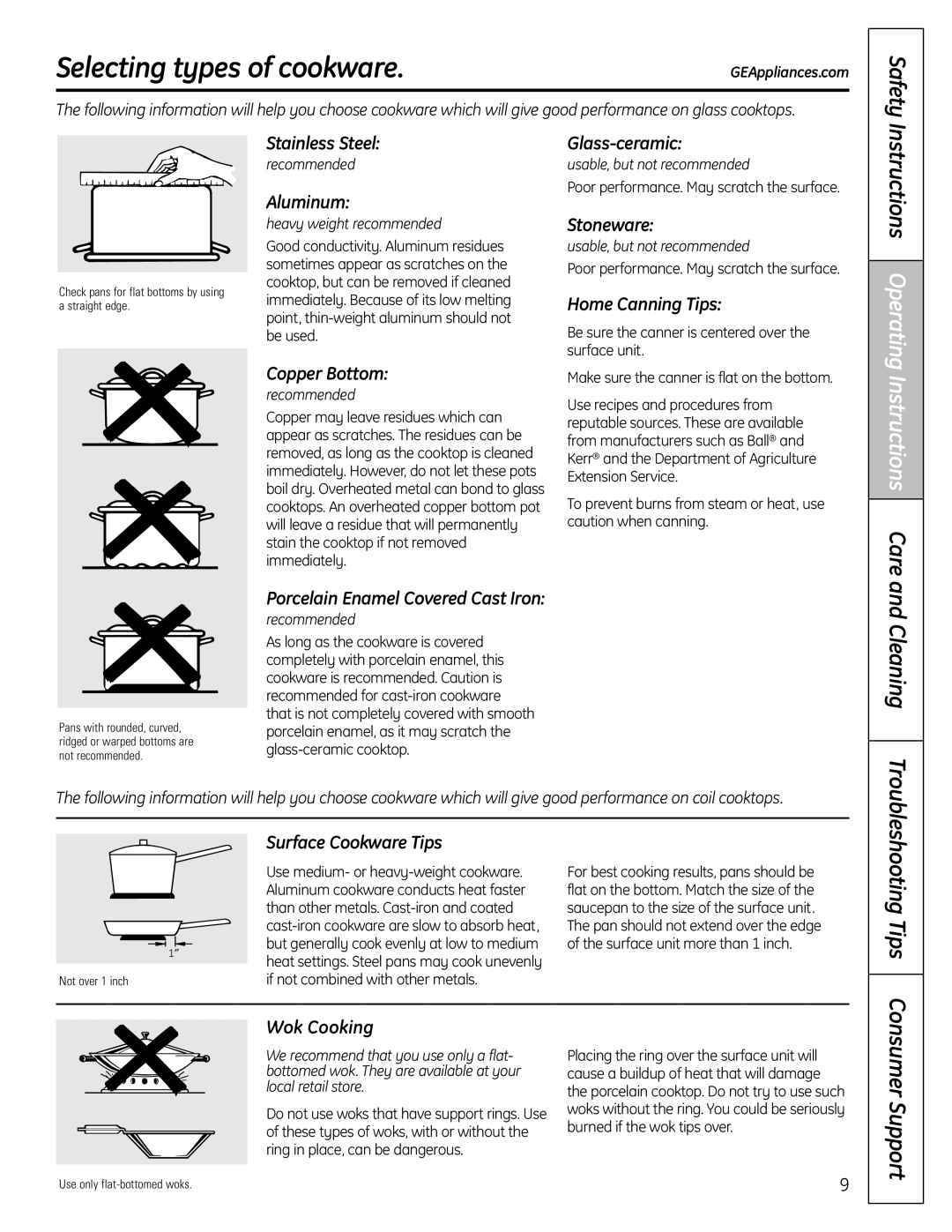
Selecting types of cookware. | GEAppliances.com |
The following information will help you choose cookware which will give good performance on glass cooktops.
Safety
Check pans for flat bottoms by using a straight edge.
Pans with rounded, curved, ridged or warped bottoms are not recommended.
Stainless Steel:
recommended
Aluminum:
heavy weight recommended
Good conductivity. Aluminum residues sometimes appear as scratches on the cooktop, but can be removed if cleaned immediately. Because of its low melting point,
Copper Bottom:
recommended
Copper may leave residues which can appear as scratches. The residues can be removed, as long as the cooktop is cleaned immediately. However, do not let these pots boil dry. Overheated metal can bond to glass cooktops. An overheated copper bottom pot will leave a residue that will permanently stain the cooktop if not removed immediately.
Porcelain Enamel Covered Cast Iron:
recommended
As long as the cookware is covered completely with porcelain enamel, this cookware is recommended. Caution is recommended for
usable, but not recommended
Poor performance. May scratch the surface.
Stoneware:
usable, but not recommended
Poor performance. May scratch the surface.
Home Canning Tips:
Be sure the canner is centered over the surface unit.
Make sure the canner is flat on the bottom.
Use recipes and procedures from reputable sources. These are available from manufacturers such as Ball® and Kerr® and the Department of Agriculture Extension Service.
To prevent burns from steam or heat, use caution when canning.
Instructions OperiOperating ructionsInstructions Care and Cleaning
The following information will help you choose cookware which will give good performance on coil cooktops.
|
| Surface Cookware Tips |
|
| Use medium- or |
|
| Aluminum cookware conducts heat faster |
|
| than other metals. |
|
| |
| 1″ | but generally cook evenly at low to medium |
| heat settings. Steel pans may cook unevenly | |
|
| |
Not over 1 inch |
| if not combined with other metals. |
|
|
|
|
|
|
For best cooking results, pans should be flat on the bottom. Match the size of the saucepan to the size of the surface unit.
The pan should not extend over the edge of the surface unit more than 1 inch.
Wok Cooking
We recommend that you use only a flat- bottomed wok. They are available at your local retail store.
Do not use woks that have support rings. Use of these types of woks, with or without the ring in place, can be dangerous.
Placing the ring over the surface unit will cause a buildup of heat that will damage the porcelain cooktop. Do not try to use such woks without the ring. You could be seriously burned if the wok tips over.
Troubleshooting Tips Consumer Support
Use only | 9 |
